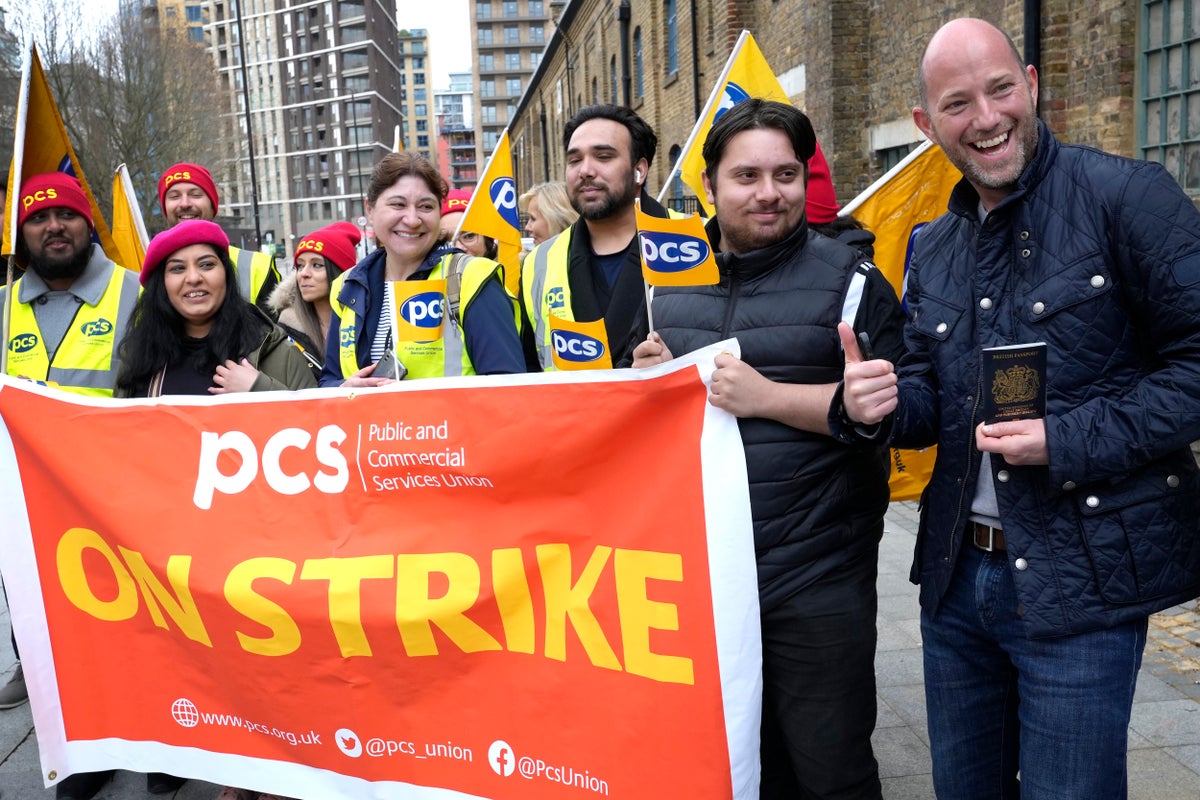
Teachers in England rejected the government’s latest pay offer on Monday, raising the specter of more strikes and further disruptions for parents and children as double-digit inflation sparks labor unrest across the country.
News that teachers had voted to reject the offer came as U.K. passport workers kicked off a five-week strike that threatens to cause headaches for travelers ahead of the summer holiday season.
Immediately after announcing the results of the ballot, the National Education Union scheduled one-day strikes for April 27 and May 2.
The walkouts are the latest in a wave of strikes that has disrupted Britons’ lives for months. Public-sector workers including doctors, train and bus drivers, airport baggage handlers, border officers and postal workers are demanding pay increases to keep pace with inflation, which stands at 10.4%.
A cost-of-living crisis fueled by sharp rises in food and energy prices following Russia’s invasion of Ukraine has left many struggling to pay their bills. Unions say wages, especially in the public sector, have fallen in real terms over the past decade.
The government had offered teachers an average 4.5% pay increase, plus a one-time payment of 1,000 pounds ($1,233), which it described as “fair and reasonable.”
But the offer was rejected by 98% of the teachers who took part in a ballot on the proposal.
The offer was unacceptable and did nothing to address the shortage of teachers in England, NEU Joint General Secretaries Mary Bousted and Kevin Courtney said at the union’s annual conference.
“The offer shows an astounding lack of judgment and understanding of the desperate situation in the education system,'' they said in a statement.
Education Secretary Gillian Keegan countered that the government had negotiated in good faith and that the union's decision was extremely disappointing. She said pay would now be decided by the independent pay review body.
“After costing children almost a week of time in the classroom and with exams fast approaching, it is extremely disappointing that the NEU have called more strike action,'' she said.
Earlier Monday, 1,000 members of the Public and Commercial Services union at the Passport Office walked off the job as they too demand higher pay. The strike is taking place as Britons seek to renew travel documents in preparation for their summer vacations.
Despite fears of delays, the government hasn’t changed its estimate that it will take up to 10 weeks to get a passport.







